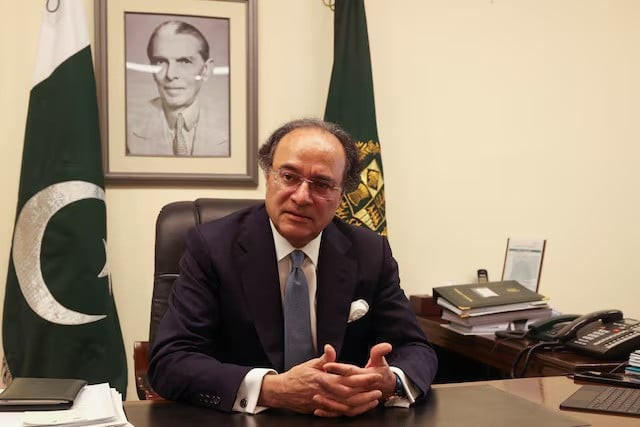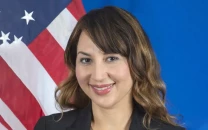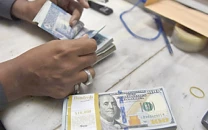FinMin stresses inclusive, equitable globalisation
Calls global economic system unequal that disproportionately benefits rich nations

Minister for Finance Muhammad Aurangzeb has called for inclusive and equitable globalisation to ensure that its benefits reach developing economies of the world.
There is an "urgent need for inclusive approach, one that benefits all nations, particularly the developing economies," he said, according to a statement issued on Wednesday.
He made the call while attending a high-level session titled "Inclusive Globalisation That Benefits All – Pathways and Actions" at the Boao Forum for Asia Annual Conference 2025, held in Boao, Hainan province, China.
Highlighting the growing inequalities within the global economic system, the finance minister stated that while globalisation had lifted over one billion people out of poverty, it remained fundamentally unequal, which disproportionately benefited developed economies while marginalising the Global South.
He said the risks of rising protectionism, unilateralism and trade wars were exacerbating global divisions, threatening to disrupt supply chains and weakening international cooperation.
"For globalisation to survive, it must be rebalanced to allow fairer participation for all nations, particularly those currently disadvantaged by restrictive trade rules and limited financial access," he said. Aurangzeb underscored that the time for rhetoric had passed and decisive action was needed. Pakistan, like many developing nations, advocates for a more balanced model of globalisation – one that promotes fair trade, sustainable growth and equitable financial systems.
He stressed that the model must be multilateral, innovation-driven and inclusive to foster development and prosperity across all regions.
One of the key challenges facing inclusive globalisation is the widening wealth and opportunity gap. The minister said that developed nations continued to gain from hi-tech sectors, digital trade and broad financial access while developing nations were held back by high tariffs, restrictive investment policies and limited infrastructure.
In response, Pakistan has consistently called for greater regional connectivity, fairer market access and stronger multilateral cooperation, citing initiatives like the China-Pakistan Economic Corridor (CPEC) and the Special Investment Facilitation Council (SIFC) as steps in the right direction.
The minister also called for a global coalition among developing nations to collectively demand fairer trade rules and greater representation in international financial institutions. These alliances are necessary to combat disproportionate tariffs and trade restrictions that hinder the integration of developing economies into global markets.
He pointed out that Pakistan's textile and agricultural sectors – the key drivers of its economy – faced significant challenges due to protectionist policies in developed countries and non-tariff barriers that limited their access to western markets.
Addressing the issue of financial inequality, Aurangzeb stressed the need for debt relief and financial justice through restructuring sovereign debt mechanisms to prevent cyclical debt crises.





















COMMENTS
Comments are moderated and generally will be posted if they are on-topic and not abusive.
For more information, please see our Comments FAQ